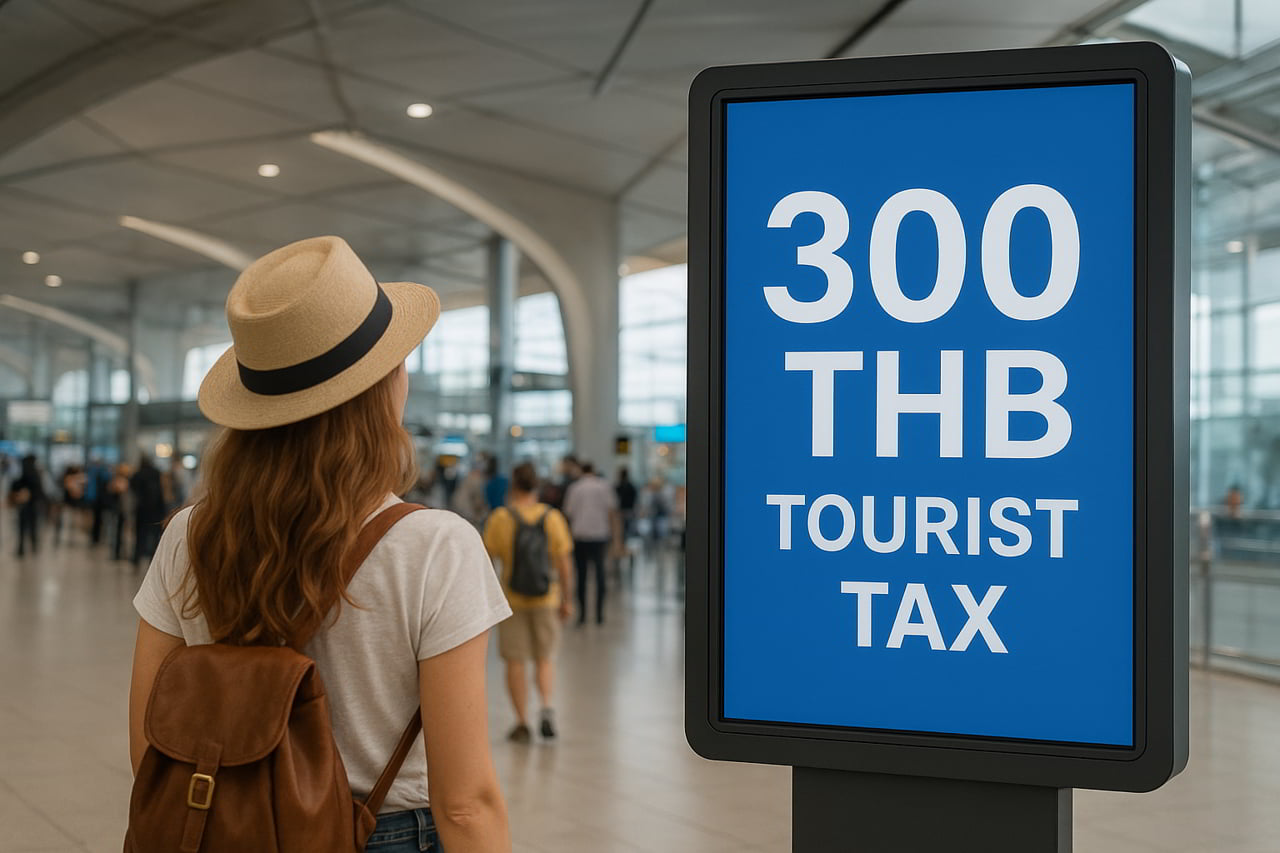
Thailand plans to introduce a tourist arrival tax
Written by the editors of theo-courant.com, your reference guide to Thailand and South-East Asia - based in Bangkok, at the heart of Thai culture.

As Thailand prepares to introduce a tourist arrival tax, the proposal is stirring controversy among travelers. With rising costs and concerns over fairness, the country may be undermining its own appeal.
Thailand plans to introduce a tourist arrival tax
The Thai government is once again pushing to implement a 300-baht tourist arrival tax for air travelers.
The stated goal: fund visitor insurance and improve tourism infrastructure — but the timing and motives raise questions.
A long-debated idea resurfaces
The idea of a tourist tax is not new. First proposed in 2020 and approved by the cabinet in 2023, it was never implemented due to industry resistance.
Now, the new Minister of Tourism, Artthakorn Sirilatthayakorn, wants to make it happen before his four-month term ends.
The fee would be 300 baht per person for air arrivals and 150 baht for land or sea entries, collected automatically upon entry.
Authorities claim the revenue would fund basic health insurance for tourists and tourism infrastructure upgrades — a plan that sounds positive, but faces skepticism.
A fragile tourism recovery
Rising costs for visitors
For months, travelers have voiced frustration over the rising cost of visiting Thailand — from accommodation and transport to excursions and guides. According to official data, tourist arrivals dropped by 7% compared to last year.
Many question whether adding another charge will help revive an already struggling tourism sector.
A double-pricing system already in place
Higher prices for foreigners
Visitors to Thailand are already familiar with dual pricing.
At many national parks, temples, and museums, foreigners pay up to three times more than Thai citizens.
Such practices are rare globally and often criticized as discriminatory.
In Europe or Japan, price differences usually depend on residency or local benefits, not nationality. In Thailand, however, this two-tier pricing has become normalized — and a new tax could worsen the country’s image among international travelers.
A counterproductive measure?
The risk of losing competitiveness
While Thailand aims to return to 40 million annual visitors, introducing an entry tax could send the wrong message.
Nearby destinations such as Vietnam and Malaysia remain more affordable and welcoming for budget-conscious tourists.
Moreover, the government has yet to explain how much of the tax revenue will truly improve infrastructure — or how effective the promised tourist insurance will be in practice.
Taxation vs. hospitality: finding the balance
Thailand is seeking a balance between economic return** and visitor satisfaction.
But in a region where competition is fierce, a new arrival tax could prove to be a short-sighted policy that discourages rather than attracts.
FAQ – Thailand’s tourist arrival tax
What is Thailand’s proposed tourist arrival tax?
It’s a 300-baht tax (around USD 8) for travelers arriving by air, and 150 baht for those entering by land or sea.
Why does the government want to introduce this tax?
Officials say it will fund health insurance for tourists and tourism infrastructure development.
When could this tax take effect?
The minister aims to implement it before the end of his term, but no exact date has been announced.
Who will have to pay this tax?
It would apply to all foreign visitors, regardless of visa type or length of stay.
What impact could this have on tourism?
Many industry experts fear it could discourage travelers and slow the country’s recovery from the post-pandemic downturn.



